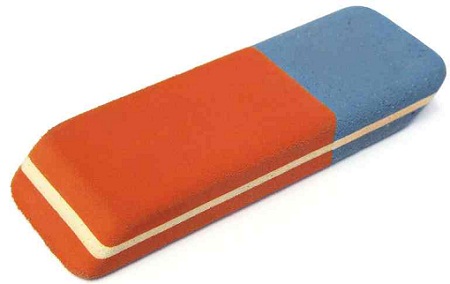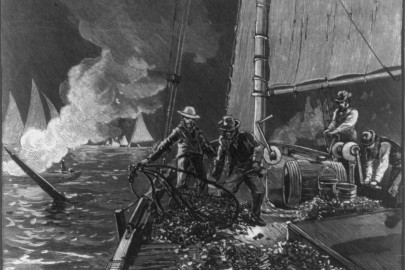Rita recalls the most embarrassing incident of her life…
Americans still hear my English accent, but in England people think I’m an American. In truth my accent must be hovering somewhere in the mid-Atlantic after so many years immersion in the American dialect. It takes a long time for an accent to change. I still say “ban-ah-na” and “tom-ah-to” much to my young grandsons’ amusement. But after being put in charge of library work schedules years ago I did quickly change over to saying “skedule.” I had to say the word so many times in the course of a day that “shedule” just began to sound pretentious to my own ears. As a new supervisor there was no advantage in conforming to the stereotype of a haughty, condescending Brit. But for the most part accents change unconsciously and imperceptibly like rocks polished to smoothness over millennia of tumbling in a riverbed. You land on a foreign shore speaking precise, clipped BBC English and then journey back years later to find yourself taken for a foreigner in your own hometown.
Vocabulary, on the other hand, changes very quickly. Humiliation is a great teacher. In my first weeks in America I was always getting myself into embarrassing situations because I just didn’t know the correct words for things. Worse, I didn’t realize that the English words I used meant something quite different in the American language. I was a smoker at the time and followed the English custom of offering my cigarette pack to the group I was with before taking one for myself. Naturally I said what I had always said in this situation: “Would you like a fag?” I was confused when they all broke into nervous laughter. I had no idea what so amused them. Finally some one took pity on me and explained that in America “fag” is a slang term for a homosexual. (The word “gay” was not yet in wide use on either side of the Atlantic). “Fag” is a slur on a par with use of the “n” word for black people. I blushed and avoided talking too much for the rest of the evening. What other verbal traps were lying in wait for me?
The nadir of my miscommunication experiences occurred on a sunny morning in Berkeley. I walked up Telegraph Avenue and paused at a cross street to wait for the “walk” sign. Glancing down I caught the gleam of something bright in the gutter amid the usual flotsam of trash and cigarette butts. I stooped to pick it up and found myself holding an elegant silver pen with a fine engraved design on the cap. It looked like the kind of pen you twist to extend a pencil lead from the tip. Except in this case when I twisted it a cylinder of rubber protruded from the tip. How unusual, I thought, pocketing my lucky find.
Later that morning I was again walking along Telegraph Avenue, this time with my boyfriend. We paused at a crowded crosswalk and waited for the light. I suddenly remembered about the pen and took it out of my pocket to show my boyfriend. “Look,” I exclaimed in a loud, excited voice, “I found this beautiful silver rubber in the gutter and it’s hardly been used!” My boyfriend’s mouth hung open with an expression of amazed incredulity. He tried to speak but just stuttering laughter came out. Around me I heard stifled giggles and realized everyone in the vicinity was staring at me. Once again I had that sinking feeling that I must have said something wrong, but I had no idea what. We walked on and when he regained his composure my boyfriend explained. In America the piece of rubber used to rub out pencil marks is called an “eraser.” A “rubber” is a condom. You might well expect to see a condom in a gutter. I had just announced to everyone within earshot that I was thrilled to find a “hardly used” condom! I could only pray that I would never see any of those people at the crosswalk again.
I instantly erased the word “rubber” from my vocabulary. But the dreadful, cringing embarrassment of that moment will never be erased from my memory.













I object. This is a charming story that isn’t the least bit objectionable.
Oh go on then, Rita, do Obama.
Failing that, um… gay marriage is a good thing, climate change is a scam and Richard Dawkins doesn’t exit.
I recall spending a weekend at Oxford with friend/student during my post-grad European backpacking tour. On the Saturday morning, we were in a common room full of clever aristos and their clever aristo “birds”. I was in silent awe as befitted a deferential colonial, but I do recall my ears burning as everyone discussed how excited they were at the prospect of going out that evening for a “thrash”.
Americans can practice their English accents by repeating the following words over and over again rapidly
Prawns, strawberries and sausages
Prawns, strawberries and sausages
But all prawns are called shrimp here ! Things the size of bloody languistine are still shrimp.
Jumbo shrimp.
Working in an industry very much steeped in chemistry , the one that has always tripped me up is Al-um-in-um. My wife always assumed we Brits didnt know how to pronounce the word until discovering that, yes, on the other side there really is another syllable. As for skedule/shedule Mrs B raised the issue of ‘so did you go to SHOOL as a kid?’
I wonder whether anyone can help me with something I’ve struggled with for at least a couple of decades now: why can most Americans not pronounce ‘squirrel’ or ‘warrior’? They come out as, respectively, ‘squorw’ and ‘worwyu’.
The one that used to wind me up was Dubya’s ‘courage’, pronounced ‘kerj’.
We can pronounce them just fine, but we don’t pronounce them the same way you do. You sound as ignorant as someone asking why British people are so bad at pronouncing “R”s.
By the way, it’s more accurate to say we pronounce “squirrel” like the word “whirl” with a “sq-” in front.
I don’t think there’s much of a difference for “warrior,” e.g., http://www.forvo.com/word/warrior/
Maybe people from the Southern or Midwestern US might say it like “wore-yer.”
Upper Midwesterner here. I’ve heard “Wore-yer” in some of the smaller towns, but’s its unusual. Part of the Fargo accent that just isn’t around much anymore.
On the other hand, there are no “f”s in Lieutenant.
Anybody interested in the one English word that has completely different pronunciations in each of the UK, the US and Canada?
Sigh. I thought not.
Do you call it ‘aluminium-eh?’?
I am. Please do tell.
Is it about?
Uk – abaht
Us – about
Canada – aboot
Khaki. Kah-ki in the UK, Kac-ki in the US and Kar-ki in Canada.
Don’t get … eh, even I won’t stoop so low.
I wonder which is closest to the original Hindustani?
Brit is the closest, although far from accurate. In original Hindi (and BTW, it’s Hindi, not Hindustani 🙂 ) it’s pronounced khaakee.
I lived in the UK for 20 years and remember when I first got there being invited to a ‘Sunday joint’…. thought: how interesting they eat first…
Not any easier for Americans in Britain:
1) Chips/crisps conundrum:
2) Zucchini-Courgettes, Eggplants-Aubergines;
3) Turnip/Rutabaga/Swede
4) Sticking Plaster/Bandaid. (I cut myself and shouted to my girlfriend to go get me a bandaid. She ran out to a convenience store and asked for a bandaid. The man behind the counter said: “what, the Bob Geldof concert?” My girlfriend–who was British–was mortified.)
with regards skedule I used to jokingly ask if they learnt that in shool….
in the early 70s I was meeting someone on ‘Beacham’ Place in London…
because of traffic and I was late the cabbie dropped me a a few blocks
short.. I couldn’t find ‘Beacham’ Place and kept asking people where it was and they kept pointing in the direction that others had and that I had apparently passed… finally someone pointed up to the street sign informing me
that ‘Beauchamp Place’ was ‘Beacham Place’… the Brits where never that keen on the French…
I’m American, married to a Brit. Sometimes he’s pedantic about pronunciation, though I attempt to explain we are, of course, different, but not necessarily wrong. As an English teacher, I find that the British seem to take this all too seriously sometimes. We lived in Ireland for many years….try those idioms on for size!
Reminds me of the intermediate-level German language class I took in Cologne, where we were discussing the use/safety of preservatives/pesticides/herbicides on foods and crops. I mentioned the possible dangers of too many “Praeservativen auf Bananen”, and most of the class (including the teacher) broke out laughing. Turns out I warned the class against putting lots of condoms on bananas…
Many British sneer at the “American word” aluminum.
They imagine that it is an Americanism.
It is the original name for the metal discovered and named by British scientist Sir Humphrey Davey. The Americans adopted this name and stuck with it. It was the British spelling that was changed by the Royal Society to make it like that of other metals (sodium, potassium etc.)
There is an Anglo-American dictionary for those who have trouble with windscreen and windshield, boot and trunk, tap and faucet, nappy and diaper etc. etc.
Except I remember reading many years ago in Scientific American their apology for a typo in that magazines first report on the elements discovery which gave us the American spelling.
It seems we (the Brits) and the French spell it correctly, you guys still use the typo.
A touch of the Nomes I think.
As an American who studied in England, it took a while for my UK friends to realize why I was somewhat offended when they wanted to “knock up” my girlfriend.
Not to mention that what they call a fanny is on the front side of what we call a fanny.
As an American living in the UK, the term I got into trouble with was “fanny pack.” It’s called a “bum bag” in the UK, and “fanny,” which in the US is simply a child-like word for your backside, is something rather ruder in the UK….
I am constantly teased by my English husband and daughter for American words and pronunciations, so it’s nice to read a post by an Englishwoman with a similar problem in the US. As the (tongue-in-cheek) saying goes: We’re two countries divided by a common language.
Once while traveling in Greece, there was an English couple on the tour with us. The woman told me their alarm clock was broken and asked me if I could come knock her up in the morning. As an American, this was rather amusing. After explaining the American meaning of ‘knock me up’, she was amused also…her husband, slightly less so.
Oh dear but there’s more.
I remember my mother saying she was going to ‘lay the table’ and producing nervous giggles from American visitors when I was a kid. Then a decade or so later I was rendered embarrassed when my US boss said he was going to ‘blow me off’ later that day. I still find this a difficult phrase to hear with equanimity.
If Brits call a sweater a jumper, then what do they call a jumper (a dress with straps such as found on overalls)?
I’ve heard that referred to as a pinafore dress in the U.S.
Or is it that in the U.K.? I often get mixed up which expression comes from which country at this point.
How ’bout “toothpicks,” which Americans use for sticking cheese squares together for hors d’oeuvres or holding onions in our martinis?
I went looking for some in a grocery store near Bath, UK, and was mystified to be led to the dental hygiene section. Oh, the clerk said, when I inquired, you mean “cocktail sticks.”